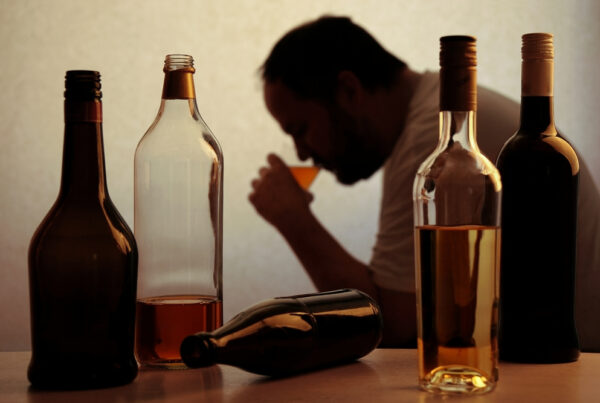Healthy oral hygiene practices should be integral to every person’s daily routine. Part of assuring healthy dental hygiene can include using mouthwash to help with bad breath and/ or oral plaque. Mouthwash is designed as a supplemental oral hygiene option. Its intended method of use is to be swooshed around one’s mouth and then spit out. There are a plethora of mouthwash options available with different ingredients. Some types of mouthwash consist of a substantial amount of alcohol. For example, Original Listerine Antiseptic Mouthwash is made up of 26.9 percent alcohol (54-proof), which is a greater alcohol content than is found in most wine, beer, and even some types of liquors. When ingested, many mouthwash products can elicit the same intoxicating effects as wine, beer, and/ or liquor. Hence, individuals that struggle with alcohol abuse may also drink mouthwash to become intoxicated.
Why Do People Abuse Mouthwash?
There are many reasons an individual may decide to drink mouthwash instead of other alcoholic beverages. Various studies have found a number of self-reported reasons for drinking mouthwash, some of which include the following:
- Cost: mouthwash is less expensive than many standard alcoholic beverages
- Age restriction: it is illegal to sell alcohol to an individual under the age of twenty one, but a minor can purchase mouthwash
- High alcohol content
- Noticeability: an individual that drinks mouthwash will have minty breath potentially making his or her intoxication less noticeable than had he or she consumed alcohol
- Availability: standard alcohol may not be available
Due to the fact that mouthwash is developed specifically with the intention to be spit out, many of the ingredients are not intended for consumption. As such, drinking mouthwash can lead to damaging and/ or dangerous health complications.
Signs Of Mouthwash Abuse
Every individual is different and may present a unique combination of signs and symptoms when it comes to mouthwash abuse. The signs of mouthwash abuse are similar to those of alcohol abuse, as although mouthwash has additional (in some cases toxic when consumed) ingredients, certain types of mouthwash have an immense amount of alcohol content. Some common examples include the following:
- Slurred speech
- Flushed face
- Droopy eyelids
- Volume control issues when speaking
- Speaking more rapidly than usual
- Aggression
- Restlessness
- Belligerent
- Irritability
- Impaired coordination
- Argumentative
- Irrational
- Dry mouth
- Excessive sweating
- Balance issues
- Stomach pain
- Severe diarrhea
- Low body temperature
- Shallow breathing
- Vomiting
Alcohol can have a varied affect on individuals, and the same is true for mouthwash. However, depending on the type of mouthwash consumed, some of the effects of the toxic for ingestion ingredients can cause universal complications.
Mouthwash Overdose
Overdose occurs when an individual floods his or her system with a substance that it is unable to metabolize, after which the substance turns toxic in one’s body. As is true with abusing any type of drug and/ or alcohol, an individual is at risk of overdose every time he or she abuses the substance, and drinking mouthwash is no exception. Signs of mouthwash overdose include the following examples, as provided by the U.S National Library of Medicine:
- Severe diarrhea
- Vomiting (with or without blood)
- Stomach pain
- Throat pain
- Low body temperature
- Shallow and/ or slowed breathing
- Low blood sugar
- Skin redness
- Loss of consciousness
- Slurred speech
- Low blood pressure
If you suspect a mouthwash overdose has occurred, contact emergency medical assistances immediately. Although it may seem harmless, drinking mouthwash can be incredibly dangerous and lead to severe short and long-term consequences. Ingesting large amounts of mouthwash can cause liver failure, gastrointestinal damage, blindness, cardiac arrest, ulcers, organ failure, or death.
For Information and Support
If you are concerned for yourself or a loved one in regards to substance abuse and/ or addiction we recommend reaching out for help as soon as possible. If left untreated, substance abuse can result in long lasting and potentially life-threatening consequences. Keep in mind: you are not alone! There is an entire network of professionals that are available to help and support you and your loved one throughout the recovery process. The earlier you seek support, the sooner your loved one can return to a happy, healthy, and fulfilling life.
Please do not hesitate to reach out with any questions regarding our specific program at Haven House Addiction Treatment and/ or general substance abuse and/ or addiction treatment related information. Our highly trained staff is readily available to discuss how we might best be able to help you and your loved one.



